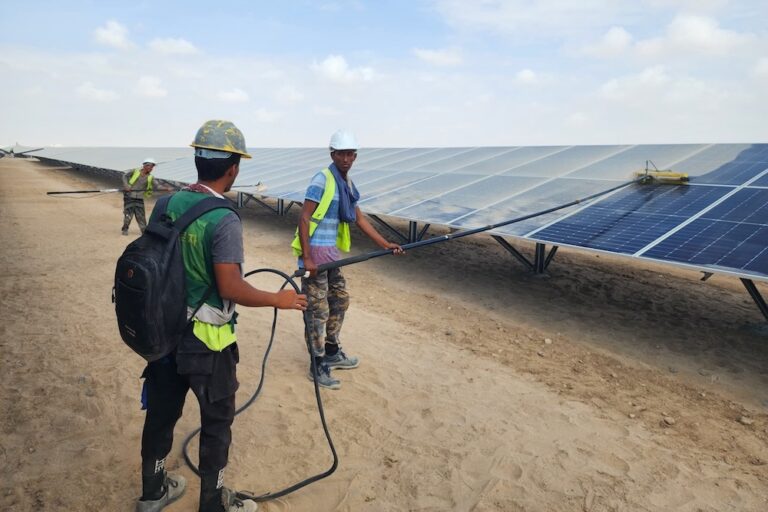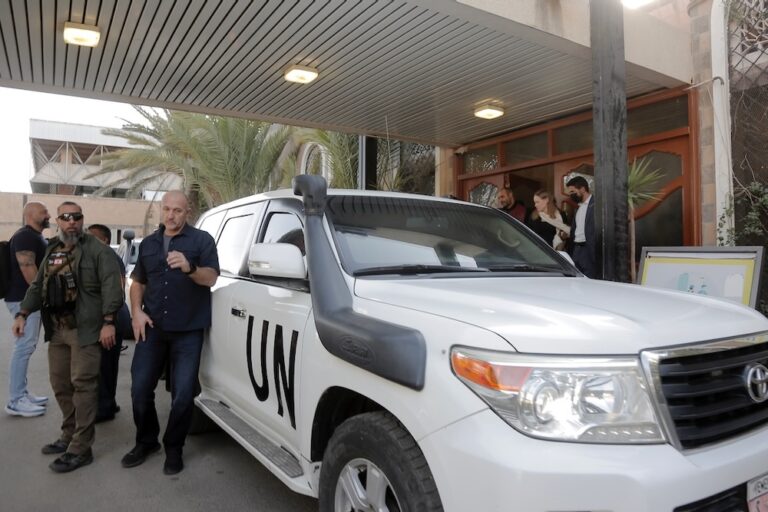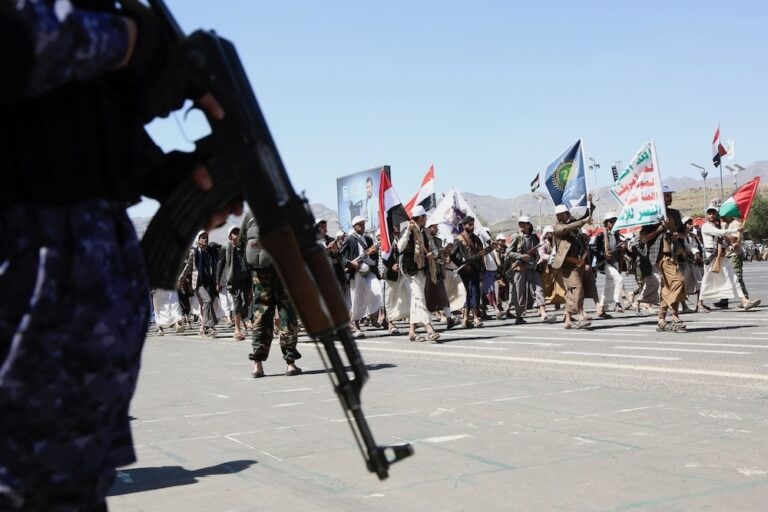Jamal Ezz Al-Din barely escaped an attempt on his life while he was reporting on an opposition rally in Sanaa on 20 October, accompanied by cameraman Taha Al-Muammari.
(RSF/IFEX) – 3 November 2011 – Reporters Without Borders is greatly concerned by the growing violence that is directly and indirectly affecting media workers in the Yemeni capital, Sanaa, and in the south of the country.
The headquarters of the independent television station Haditha Al-Madina in the city of Taiz, 270 km south of Sanaa, were severely damaged yesterday by the explosion of a shell fired nearby. Despite serious damage, there were no injuries.
In addition, the head office of the station Al-Saida in the Sufa district of Sanaa, was caught in the crossfire during an exchange on 22 October between Saleh supporters and the First Armoured Division, which had joined the protest movement.
A few days previously, the station’s offices were set alight during clashes between the two sides and one employee was shot dead.
We have learned that Jamal Ezz Al-Din, a correspondent for the station Qatar TV barely escaped an attempt on his life while he was reporting on an opposition rally in Sanaa on 20 October, accompanied by cameraman Taha Al-Muammari. A soldier from the First Armoured Division opened fire on the journalist, who was only just saved from harm by the cameraman who stepped between them.
Al-Din took refuge in the office of Yemen Digital, where several foreign media organizations have their offices. The soldier and other troops then fired on the building. An officer from the division quickly intervened and called the troops to order. There were no casualties.
Reporters Without Borders urges the division’s high command to give clear instructions to its troops to ensure that those who work in the media are not targets of intimidation or even gunfire.
We remind the Saleh loyalist army and the supporters of the protest movement that journalists and buildings housing the media are protected by international convention and by United Nations Security Council Resolution 1738.


